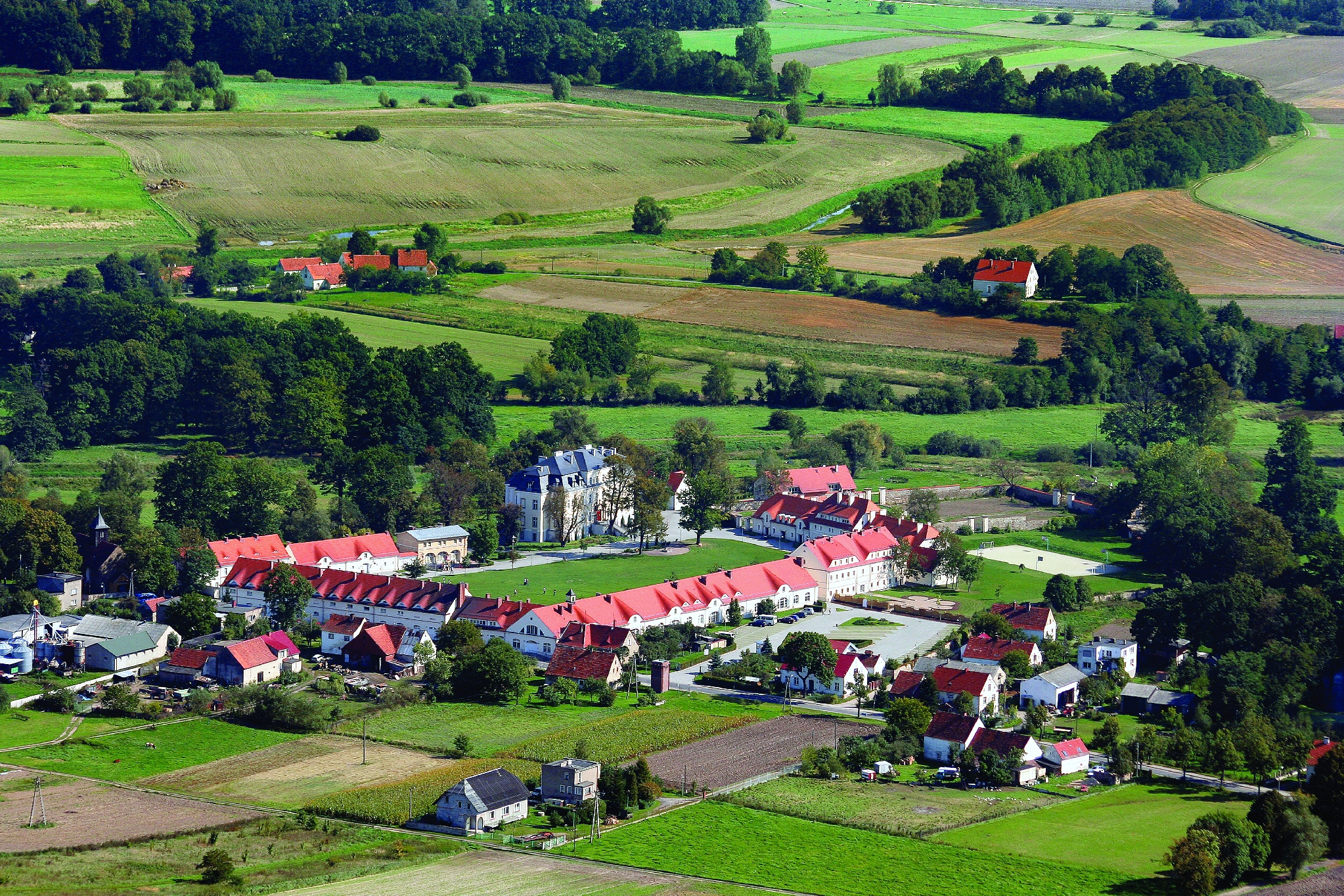
Due to the COVID-19 pandemic, we will remember 2020 as a very difficult year, as the time in which making plans for the future gave way to fear for our health and that of our loved ones, fear for work and a safe tomorrow. Under the circumstances the activity of the Krzyżowa Foundation had to change. Many of the plans we wanted to implement this year have been postponed, and many of them we have had to change or find other ways to put them into practice.
2020 was to be very fruitful for the Foundation, we counted on a record number of projects and visitors. Only in the period from March to June, 69 multi-day projects were planned in Krzyżowa, in which nearly 3,000 people were to participate. Most of them were Polish-German school exchanges. Lockdown in Poland and other European countries shattered all these plans. Within a few weeks, we had to completely change the approach to the implementation of our projects, in which, after all, youth exchanges and meetings of people from different countries were always the most important elements. In this crisis year we have been forced to find solutions to two key problems: how is the Krzyżowa Foundation to survive and how it can, after all, pursue its mission.
The cancellation of almost all projects has deprived us of a significant portion of our revenues. The prospect of redundancies and even the declaration of bankruptcy of the Foundation has become very real. In this situation, we took a number of steps to protect us from the worst-case scenarios. We reduced the salaries of the entire team, reformatted some projects to be able to implement them online, appealed for help to our partners and friends, and asked for extraordinary help from the governments of Poland and Germany, whose political and financial support 30 years ago made it possible to create the International Youth Meeting Center.
These activities brought effects - we received support from our partners and friends, including the German-Polish Youth Office, Świdnica Commune, Kreisau-Initiative e. V., as well as individual donors. We took advantage of the anti-crisis shield offered by the Polish government. We also received a special subsidy from the German government, without which it would be very difficult for us to survive this difficult period. We were also supported by the Foundation's bodies, headed by the Supervisory Board. Our employees, despite their part-time work, carried out projects with full dedication and won grants for new ones. Thanks to this, the Foundation was able to ensure financial stability until the end of the year.
The problem remains to be solved - how to operate in new conditions, under the sanitary regime? How to implement projects at the highest substantive level, while respecting all the restrictions related to the current epidemic? The methods we have used for years, tested and refined in detail, turned out to be useless. We were unable to organize youth group meetings, but we stayed in touch with them. We have prepared a new program offer, possible to be implemented online, and we continued to create a meeting place in Krzyżowa, even virtual.
In the spring and summer, we carried out several dozen webinars and online workshops with students and teachers from Poland and Germany. At that time, there were 2 LIVE lessons from Krzyżowa, broadcast on the Bundeszentrale für Politische Bildung channels. In online mode, we also carried out our cyclical or long-term projects, such as: "Roads of Freedom" seminar, "#CreatingSpace A Digital Future with Ethics in Mind" project, training in global education and meetings as part of the School of Dialogue. Together with our partner association from Berlin - Kreisau-Initiative - we organized for the first time the BarCamp online "(Hi) Storytelling: My History, Your History, Our History". Currently, a document is being prepared with recommendations from this meeting on modern and virtual forms of historical education in various countries.
Recognizing the problems with accessing attractive and valuable teaching materials that could be used by teachers during distance learning, we created scenarios and audiovisual materials that could make online lessons more attractive. As part of the project "(No)Peace 1945", podcasts were created, which were historians' conversations about modern history and lesson scenarios. Other scenarios, this time relating to social dialogue, were developed as part of the "Laboratory for dialogue and reconciliation" project. A kind of "lesson from Krzyżowa" are also films made as part of the project „A united Europe was not achieved and we had war". Each of the eight episodes presents the history, ideas or activities of the Krzyżowa Foundation in the context of the history of Europe - its conflicts, reconciliation and integration.
During the holidays, we were able to recall the atmosphere of Krzyżowa before the pandemic, at least for a moment. We managed to implement our summer projects, international meetings of children and young people, in an almost traditional formula, the only difference was the ubiquitous masks, disinfectants and social distance. There were also annual music projects: Master Course "Students of Masters", Summer Guitar Festival, International Flamenco Festival, International Festival of Chamber Music Krzyżowa-Music and - for the first time - Indian dance summer in Krzyżowa.
We all watched with joy how Krzyżowa is slowly beginning to bustle with life again, but autumn brought another wave of the pandemic and with it the return of restrictions in Poland and other countries. Today we look to the future with concern, but we are richer in having experiences that help us adapt to new conditions. We know that thanks to creativity, cooperation and mutual kindness, we can achieve a lot even in unfavorable circumstances. We assume that the upcoming 2021 will not be easy, but we believe that the Krzyżowa Foundation will continue to carry out its mission to the best of its ability.



